7 Best Sprinkler Valves of 2023: Control Your Flow
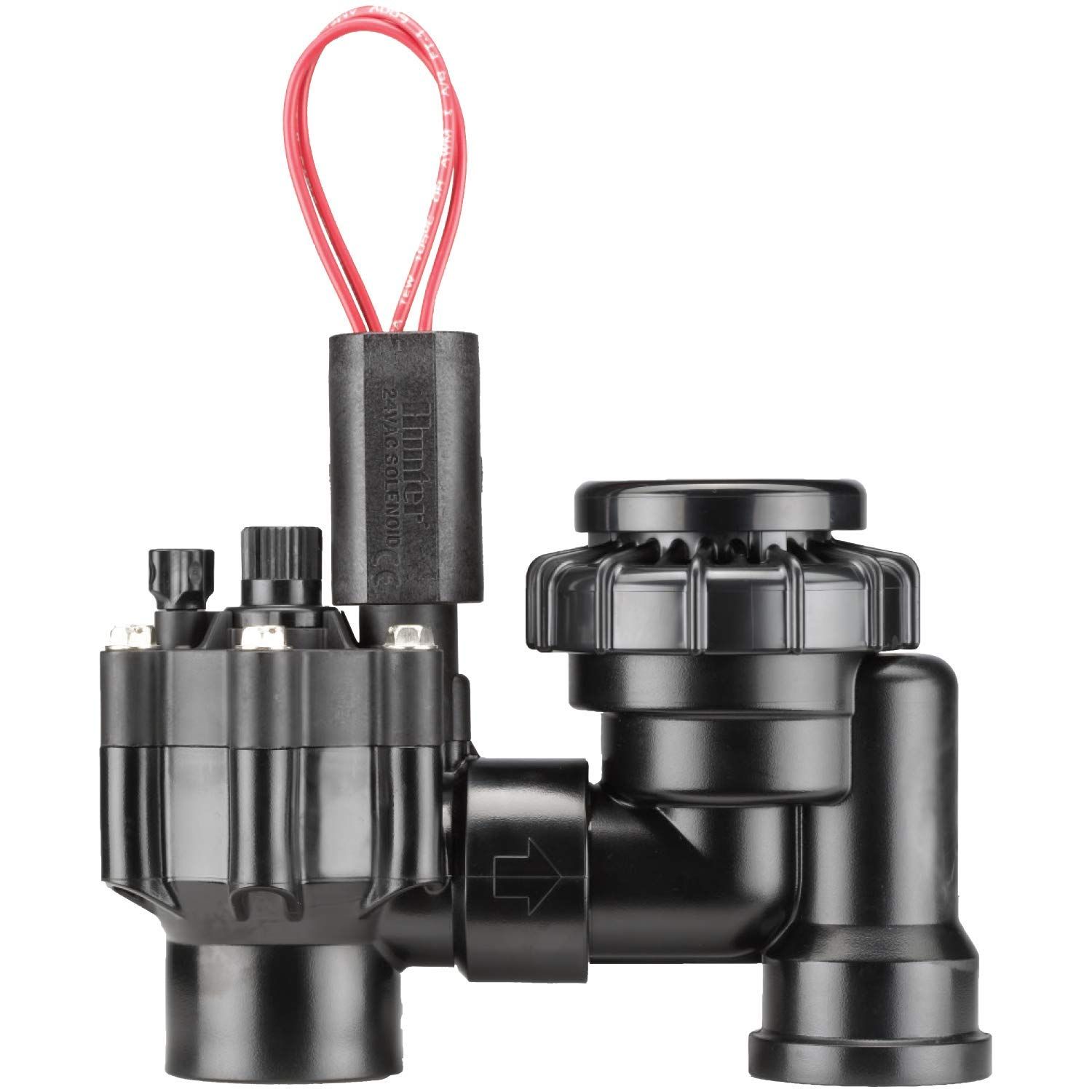
Sprinkler valves are an essential component of any irrigation system. They control the flow of water to the sprinkler heads, ensuring that your lawn and garden receive the right amount of water.
But with so many different types and brands of sprinkler valves on the market, it can be challenging to choose the right one for your needs.
When looking for the best sprinkler valves, there are several critical factors to consider. The first is the type of valve. There are two primary types of sprinkler valves: globe valves and anti-siphon valves.
Globe valves are the most common and are suitable for most residential and commercial irrigation system applications. Anti-siphon valves, on the other hand, are designed to prevent backflow and are required by law in some areas.
Another essential factor to consider is the size of the valve. The size of the valve you need will depend on the size of your irrigation system and the water pressure in your area.
It's essential to choose a valve that can handle the flow rate and pressure of your system to ensure that your sprinklers work correctly.
We spent hours researching and testing various sprinkler valves to identify the best ones on the market.
In the following sections, we'll share our top picks and provide a detailed analysis of each one.
Whether you're a homeowner looking to upgrade your irrigation system or a professional landscaper, our guide will help you find the best sprinkler valves for your needs.
Best Sprinkler Valves: Full Analysis (Updated for 2023)
We have researched and tested various sprinkler valves to bring you the best options available on the market. Whether you are looking for durability, efficiency, or affordability, we have got you covered.
Our team has carefully selected the top sprinkler valves based on their features, performance, and user reviews.
Below is our roundup of the best sprinkler valves that will help you keep your lawn and garden healthy and green.

If you're looking for a reliable sprinkler valve that offers electric backflow prevention, the Hunter 1" PGV-ASV Anti-Siphon Valve might be just what you need.
Pros
- The valve provides simple, trouble-free operation without the need for a separate backflow preventer.
- It works with battery-operated irrigation controllers and DC-latching solenoids.
- The built-in flow control maximizes efficiency and prolongs the life of the system.
Cons
- The exterior finish is made of stainless steel, which may not be as durable as other materials.
- The valve is only available in one size, which may not be suitable for all irrigation systems.
- The price point may be higher than other sprinkler valves on the market.
In our experience, the Hunter 1" PGV-ASV Anti-Siphon Valve is a reliable and easy-to-use sprinkler valve that offers great value for its price. The valve's built-in flow control feature ensures that your irrigation system operates efficiently, while the electric backflow prevention system keeps your water supply safe from contamination.
Installation is straightforward, thanks to the valve's captive screws that prevent loss of parts during installation and maintenance. The valve also works seamlessly with battery-operated irrigation controllers and DC-latching solenoids, making it a versatile choice for a variety of irrigation systems.
However, the valve's exterior finish is made of stainless steel, which may not be as durable as other materials. Additionally, the valve is only available in one size, which may not be suitable for all irrigation systems.
Finally, the price point may be higher than other sprinkler valves on the market, which may be a consideration for some buyers.
Overall, we recommend the Hunter 1" PGV-ASV Anti-Siphon Valve for those looking for a reliable and easy-to-use sprinkler valve that offers electric backflow prevention.
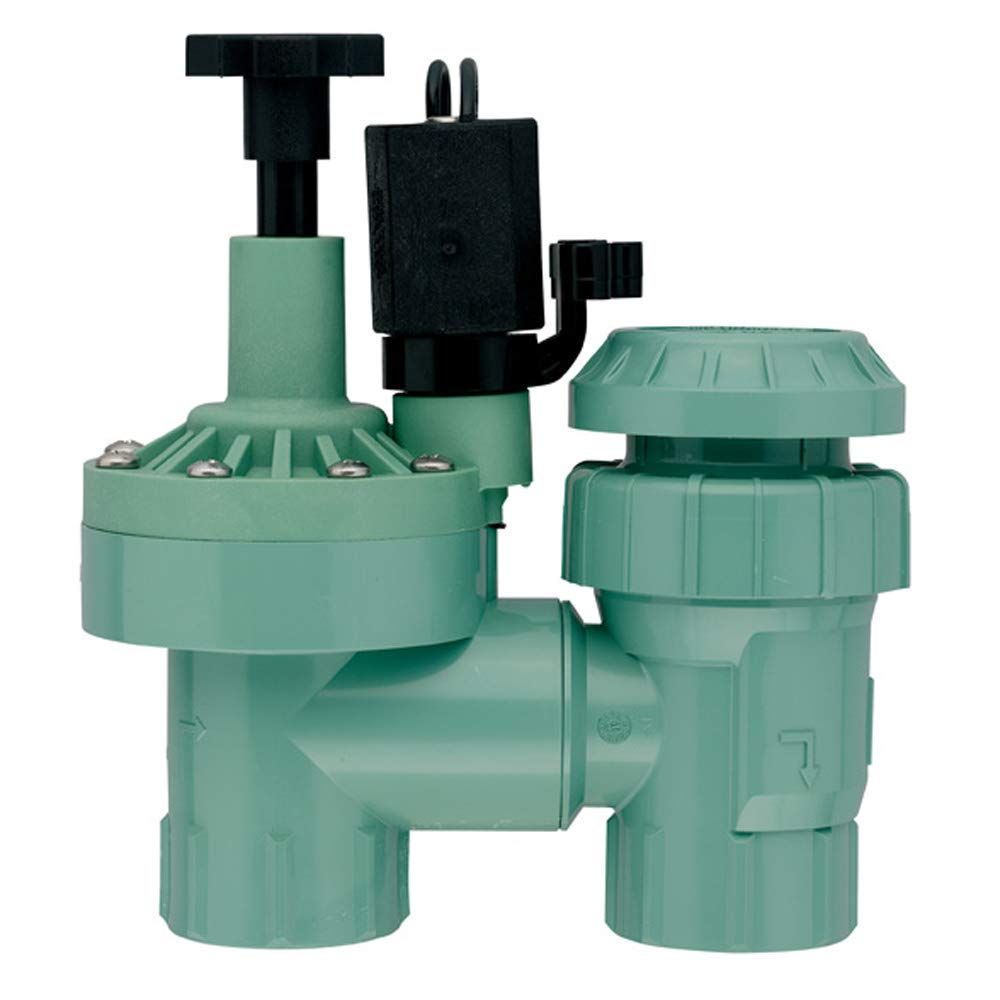
We highly recommend the Orbit 57623 Sprinkler Valve for anyone who wants to control the flow of water while also protecting their culinary water system.
Pros
- The combination of an inline forward flow valve and an atmospheric vacuum breaker prevents water flowing from the irrigation system back into the culinary system, making it the perfect choice for those in California.
- The valve features a 24 VAC solenoid, manual actuation lever, and flow control for easy and efficient use.
- The internal scrubber filter helps keep the valve clog-free from dirty water, ensuring long-lasting and reliable performance.
Cons
- The valve should be installed at least 6 inches above the highest head in the zone which it controls, which may require above-ground installation on risers.
- This valve is only suitable for outdoor irrigation use with cold water.
- Some users have reported that the valve may leak or fail after extended use.
The Orbit 57623 Sprinkler Valve is a reliable and efficient choice for anyone in need of an anti-siphon valve.
Its combination of features ensures that it will protect your culinary water system while also providing easy and efficient control of your irrigation system.
However, it is important to note that proper installation is key to its performance, and it may not be suitable for all irrigation systems.
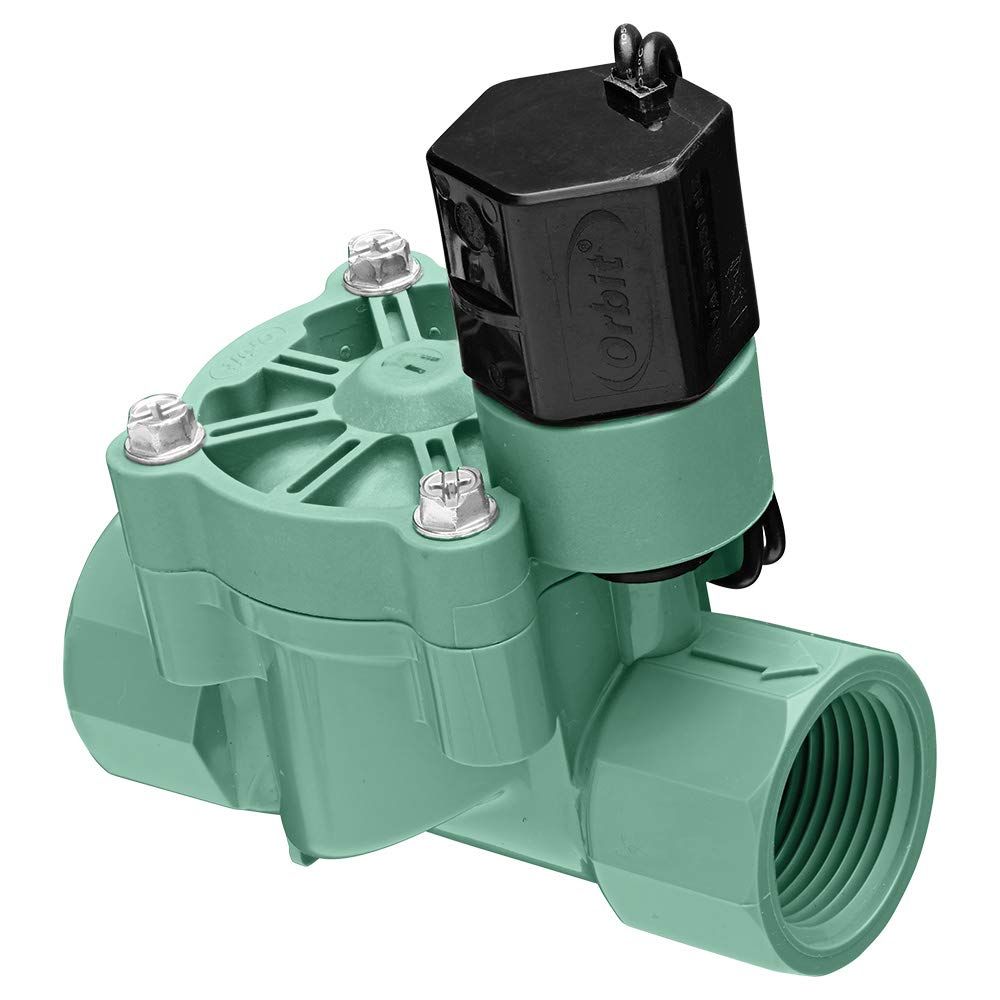
If you're looking for a reliable and easy-to-install sprinkler valve, the Orbit 57281 is a great option.
Pros
- The 24 VAC solenoid includes manual actuation with a twist of the solenoid, making it easy to use.
- An internal scrubber filter helps keep the valve clog-free from dirty water, ensuring that your irrigation system runs smoothly.
- Four captured screws in the lid allow for easy servicing of the valve diaphragm, making maintenance a breeze.
Cons
- Some users have reported that the solenoids on these valves are noisy and buzz when activated.
- The controller has a glitch
- This valve is only suitable for outdoor irrigation use with cold water.
We recently upgraded to the Orbit 57281 from an older jar top style valve and have been very pleased with the results. The valve is easy to install and use, thanks to the 24 VAC solenoid that includes manual actuation with a twist of the solenoid.
We also appreciate the internal scrubber filter that helps keep the valve clog-free from dirty water, ensuring that our irrigation system runs smoothly.
One of the standout features of the Orbit 57281 is the four captured screws in the lid that allow for easy servicing of the valve diaphragm. This makes maintenance a breeze and ensures that our valve will last for years to come.
While some users have reported that the solenoids on these valves are noisy and buzz when activated, we haven't found this to be a major issue. However, it's worth noting that this valve is only suitable for outdoor irrigation use with cold water.
Overall, we highly recommend the Orbit 57281 for anyone in need of a reliable and easy-to-use sprinkler valve.
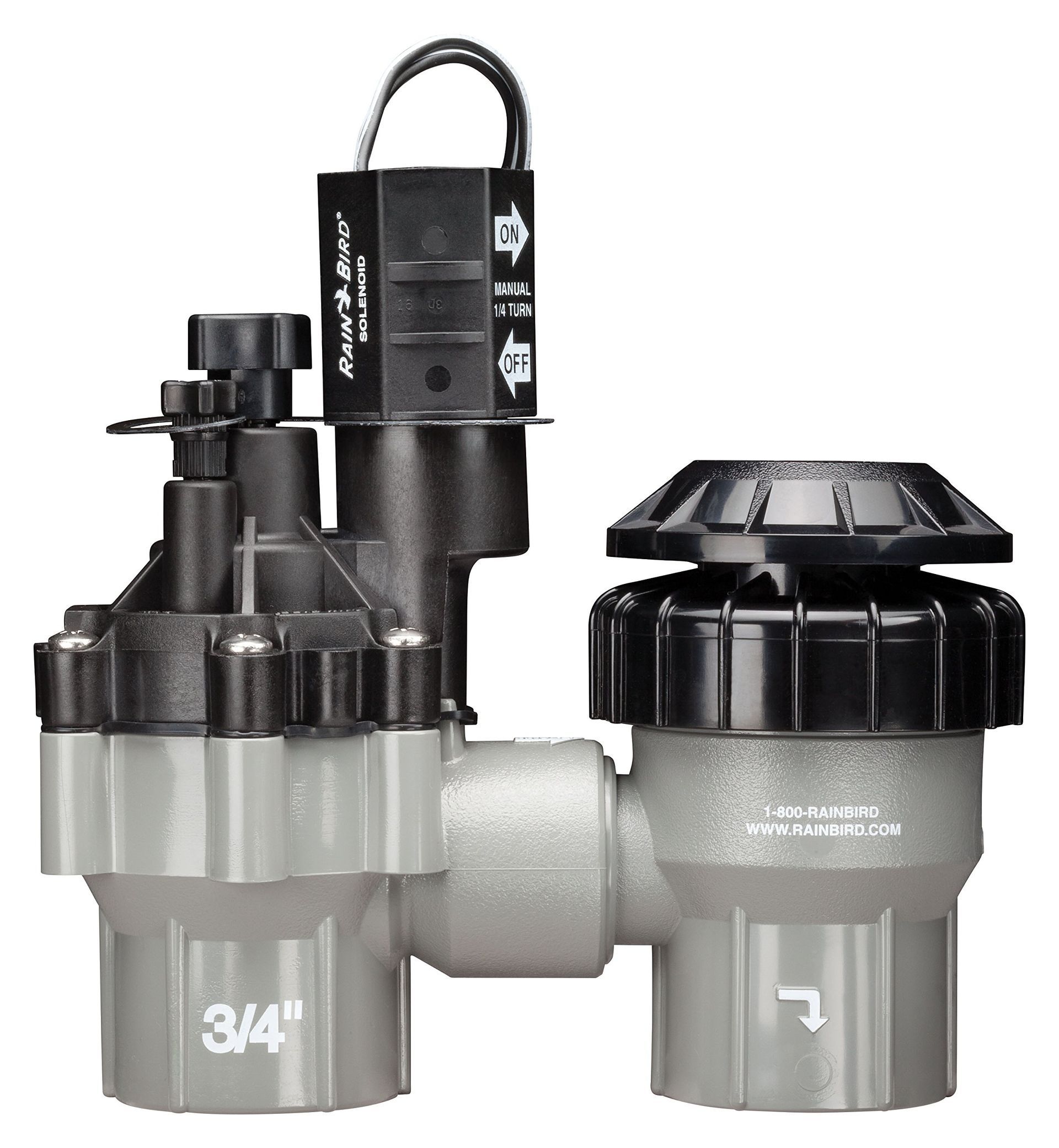
If you're looking for a reliable anti-siphon valve that can help you save water, then the Rain Bird DASASVF075 is a great choice. We've been using this valve for years and it has never let us down.
Pros
- The top-mounted flow control knob makes it easy to adjust the flow to the zone, which helps optimize sprinkler performance and avoid misting.
- The reverse-flow design helps prevent flooding in the event of internal diaphragm failure, which can save water and prevent damage to your lawn or garden.
- The energy-efficient, low power encapsulated solenoid with captured plunger provides long-lasting durability.
Cons
- The valve can be a bit tricky to install, especially if you're not familiar with anti-siphon valves.
- The valve may leak if it's not installed properly or if the diaphragm is damaged.
- The valve may not be suitable for all irrigation systems, especially those with low water pressure.
Overall, we highly recommend the Rain Bird DASASVF075 Professional Grade Anti-Siphon Valve with Flow Control.
It's a reliable and durable valve that can help you save water and keep your lawn or garden healthy.
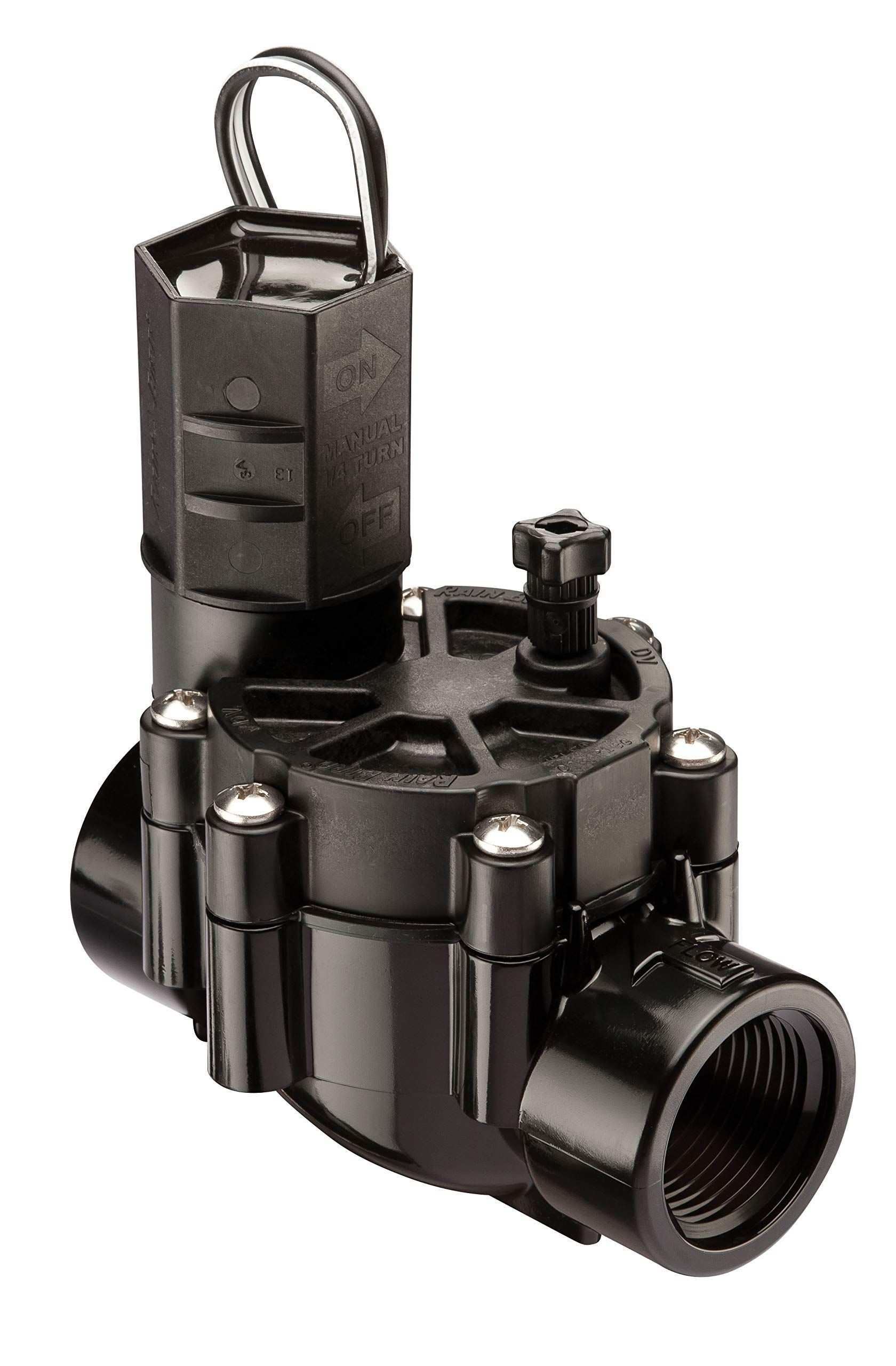
Pros
- The patented Zero Flush Seal prevents water waste on start-up
- The heavy-duty stainless-steel retraction spring improves pop-down and resists corrosion
- The professional-grade superior seal protects the sprinkler from dirt and debris
Cons
- The spray radius is only 15 feet, which may not be sufficient for larger lawns
- It only has two range options, making it difficult to use in narrow or small areas
- The optimal operating pressure is 30 PSI, which may not be compatible with all irrigation systems
The Rain Bird CP100 In-Line Automatic Sprinkler Valve is a reliable and efficient option for those in need of a sprinkler valve. Its unique reverse-flow design helps prevent flooding in the event of internal diaphragm failure, ensuring the valve stays closed and saving water.
The valve operates automatically or manually with manual bleed screw, making it easy to use.
The valve is designed for below-ground installation, ensuring it stays out of sight and away from playful hands.
Its energy-efficient, low power encapsulated solenoid with captured plunger makes it an eco-friendly option. The Buna-N diaphragm provides superior performance in harsh water environments, making it a great choice for those who live in areas with hard water.
However, it is important to note that the valve operates only with 24 volt AC irrigation timer/controller, so it may not be compatible with all systems. Additionally, In-Line valves will not prevent backflow on their own, so a backflow prevention device is required. The 1-inch NPT threads may not be ideal for those who prefer garden hose barbs.
Overall, the Rain Bird CP100 In-Line Automatic Sprinkler Valve is a great investment for those in need of a reliable and efficient sprinkler valve.
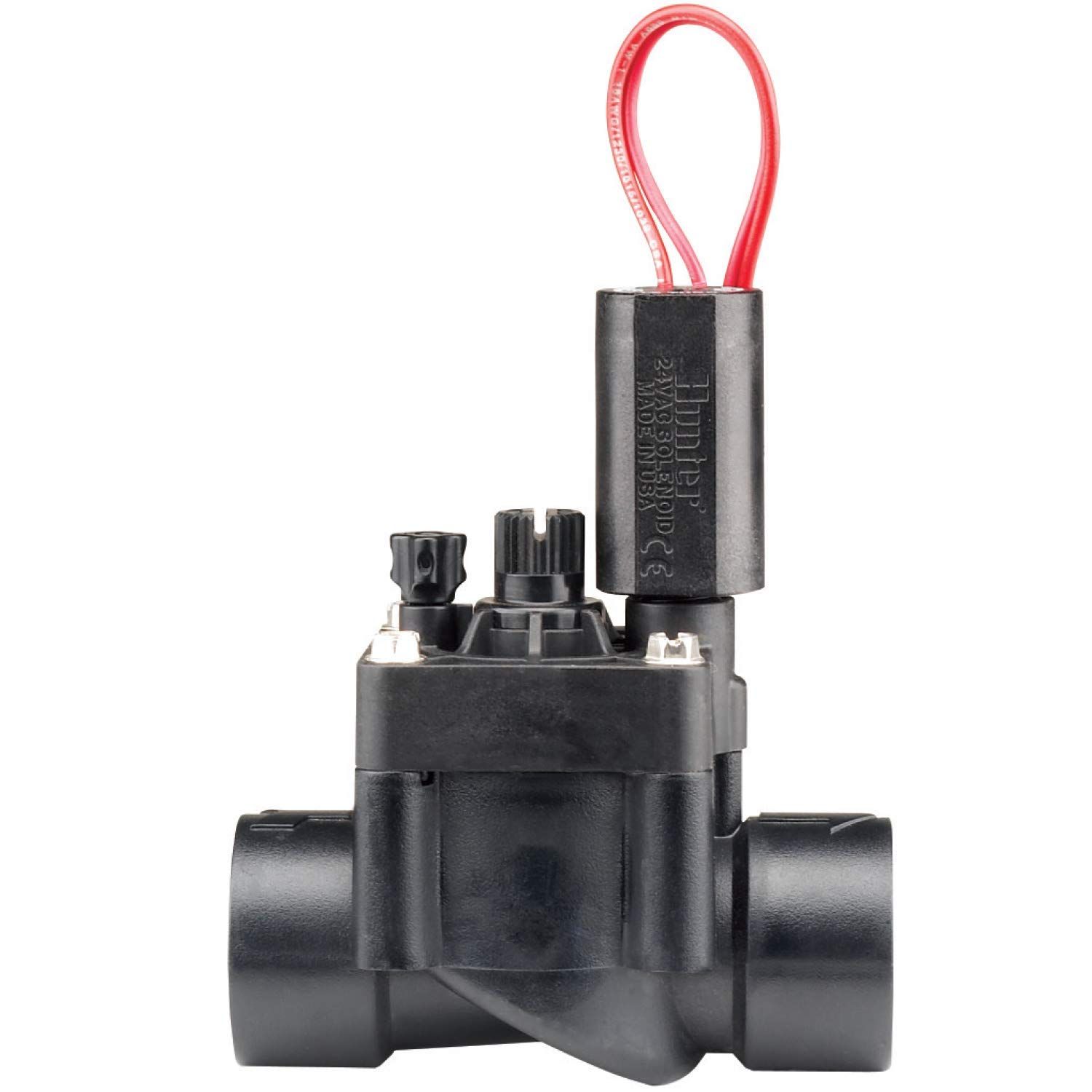
If you're looking for a reliable and sturdy sprinkler valve, the Hunter 1" PGV Valve Small is a great choice.
Pros
- This valve is easy to install, access, and maintain, making it a versatile and robust option for common irrigation applications.
- The heavy-duty construction of this valve guards against stress failure, ensuring maximum longevity and reliability.
- Captive screws prevent loss of parts during installation and maintenance, making it easier to work with.
Cons
- Some users have reported that the valve can be difficult to adjust, which may require additional time and effort.
- The valve is designed for a 1" inlet/outlet, which may not be suitable for all irrigation systems.
- While the valve includes built-in flow control, it may not be as efficient as other models on the market.
Overall, we recommend the Hunter 1" PGV Valve Small for its durability and ease of use.
With its heavy-duty construction and captive screws, this valve is built to last and require minimal maintenance.
While it may not be the most efficient option on the market, it is a reliable choice for common irrigation applications.
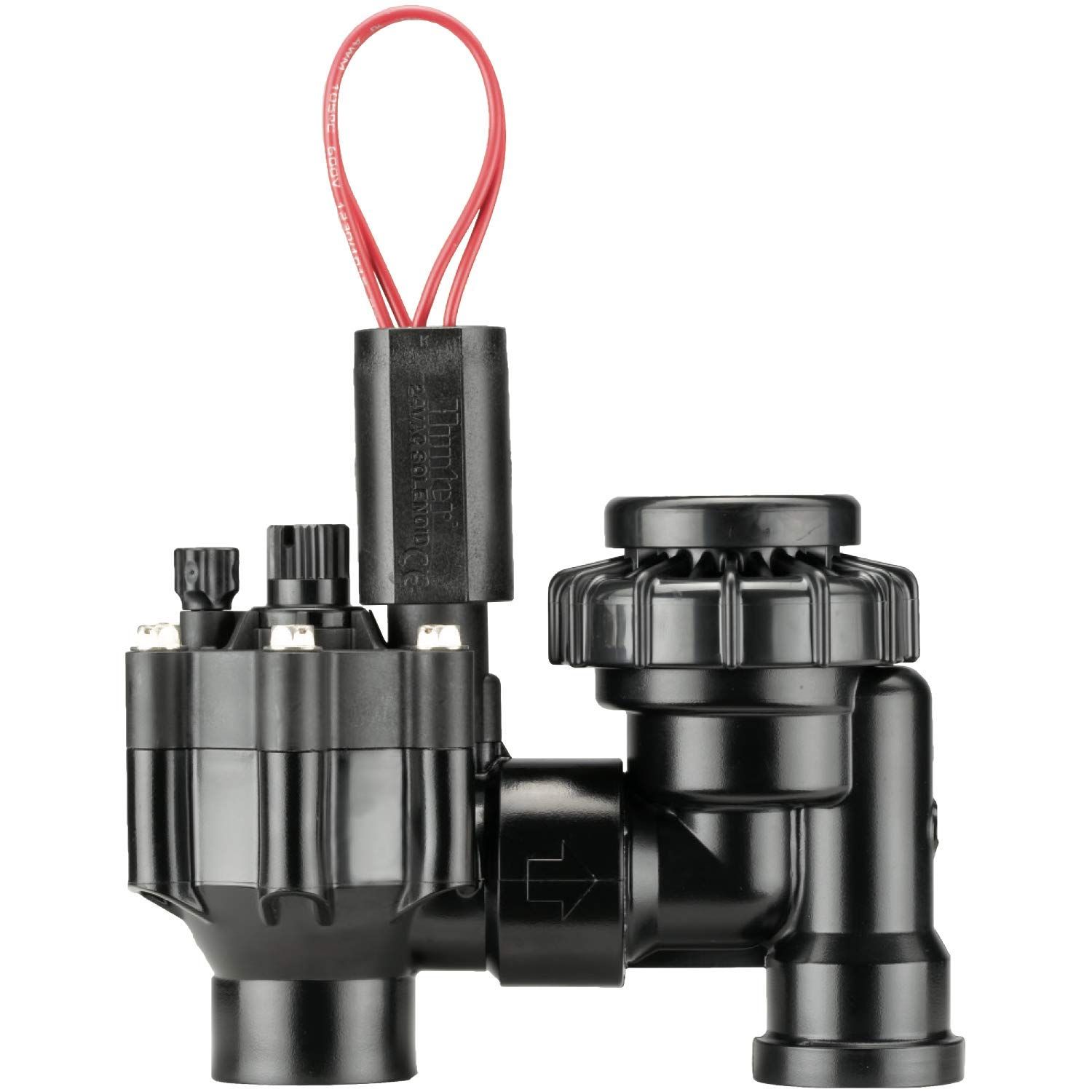
If you're looking for a reliable sprinkler valve that doesn't require a separate backflow preventer, the Hunter 3/4" PGV-ASV Anti-Siphon Valve is a great option.
We've used it in standard irrigation applications and found it to be highly reliable with trouble-free operation. Here are the pros and cons based on our experience:
Pros
- The valve works with battery-operated irrigation controllers and DC-latching solenoids, making it easy to integrate into your existing system.
- Captive screws prevent loss of parts during installation and maintenance, saving you time and hassle.
- Built-in flow control maximizes efficiency and prolongs the life of the system, helping you save water and money in the long run.
Cons
- The valve has a 3/4" NPT female installation type, which may not be compatible with all irrigation systems.
- Some users have reported leakage issues after a few months of use, which may require replacement or repair.
- The price point is higher than some other sprinkler valves on the market, which may be a consideration for budget-conscious buyers.
In our experience, the Hunter 3/4" PGV-ASV Anti-Siphon Valve is a reliable and high-quality option for standard irrigation applications. The valve is easy to install and use, and the built-in flow control helps you save water and money over time.
However, the valve may not be compatible with all irrigation systems, and some users have reported leakage issues. Overall, we recommend this product for those looking for a reliable and efficient sprinkler valve.
What To Consider Before Buying Sprinkler Valves
When choosing the best sprinkler valve for your irrigation system, there are several factors to consider. Here are some key features to look for to ensure you get the best product:
Type of Valve
There are two types of sprinkler valves: electric and hydraulic. Electric valves are controlled by an electronic controller, while hydraulic valves are controlled by water pressure.
Electric valves are more common and easier to install, but hydraulic valves may be a better choice for larger systems or areas with low water pressure.
Either way, nothing beats automatic control sprinkler valves. There's also manual valves, like ball sprinkler valves or inline valves. You can even get a globe valve. The best irrigation valves covers a wide variety of options.
Also, the type of valve you purchase might be different between lawn sprinkler systems and irrigation systems. Keep that in mind.
Size
The size of the valve should match the size of the pipe in your irrigation system. Most residential systems use 1-inch or 1.5-inch pipes, while commercial systems may require larger valves.
Material
Valves can be made from various materials, including PVC, brass, and stainless steel. PVC valves are the most affordable and commonly used, while brass and stainless steel valves are extremely durable.
Flow Rate
The flow rate of the valve should match the flow rate of your irrigation system. A valve with a lower flow rate may cause the system to work inefficiently, while a valve with a higher flow rate may cause water waste.
Pressure Rating
The pressure rating of the valve should match the water pressure in your system.
A valve with a lower pressure rating may fail under high pressure, while a valve with a higher pressure rating may be unnecessary and more expensive.
By considering these factors, you can choose the best sprinkler valve for your irrigation system.
Professional installation
Sometimes it's best to call a professional for installing your sprinkler system. No shave in in - just something that needs to be done. Having your sprinkler system done right will be a worthwhile investment.
Best Sprinkler Valves FAQs

Carl Anderson
Carl Anderson is an avid outdoorsman with a keen interest in writing about and reviewing tools. He has over 20 years of writing experience and the only time he isn't feverishly typing away at his computer is when he's outside in nature working on his projects. You can learn more about him here.
Join our community!
Join to receive guides, insights, and the latest gardening deals!
